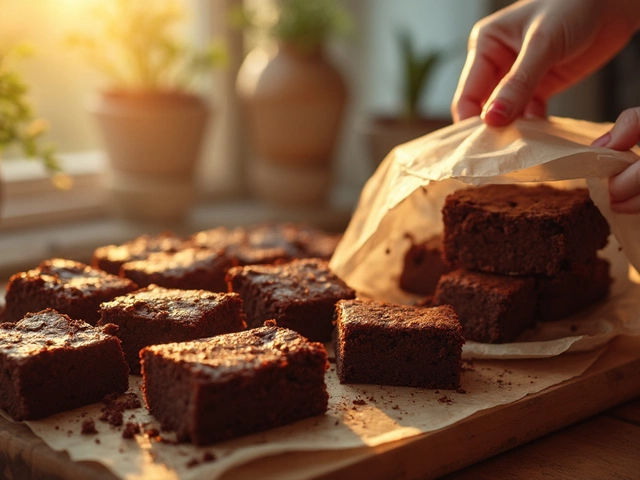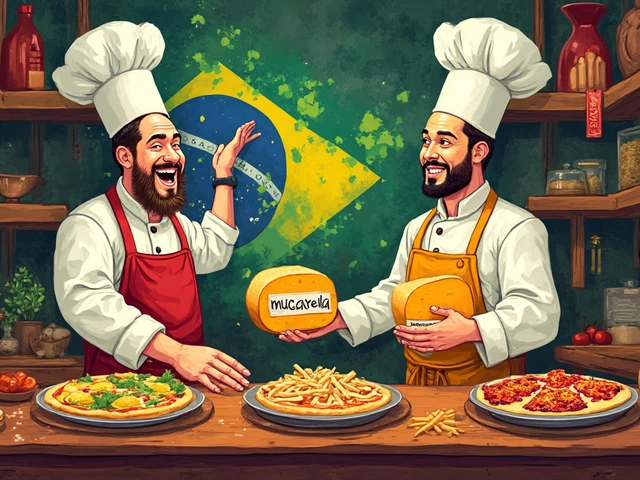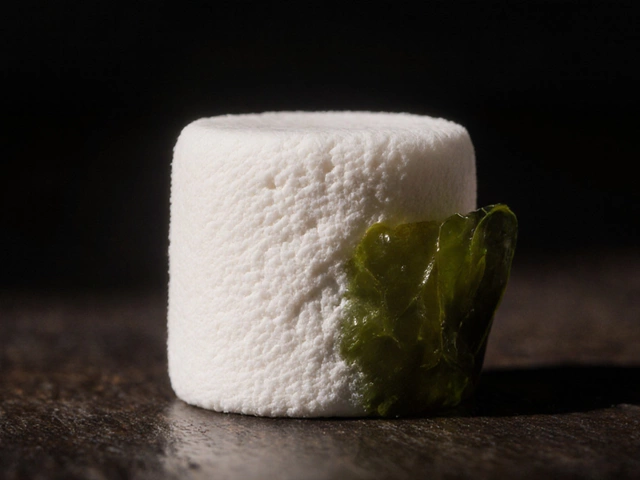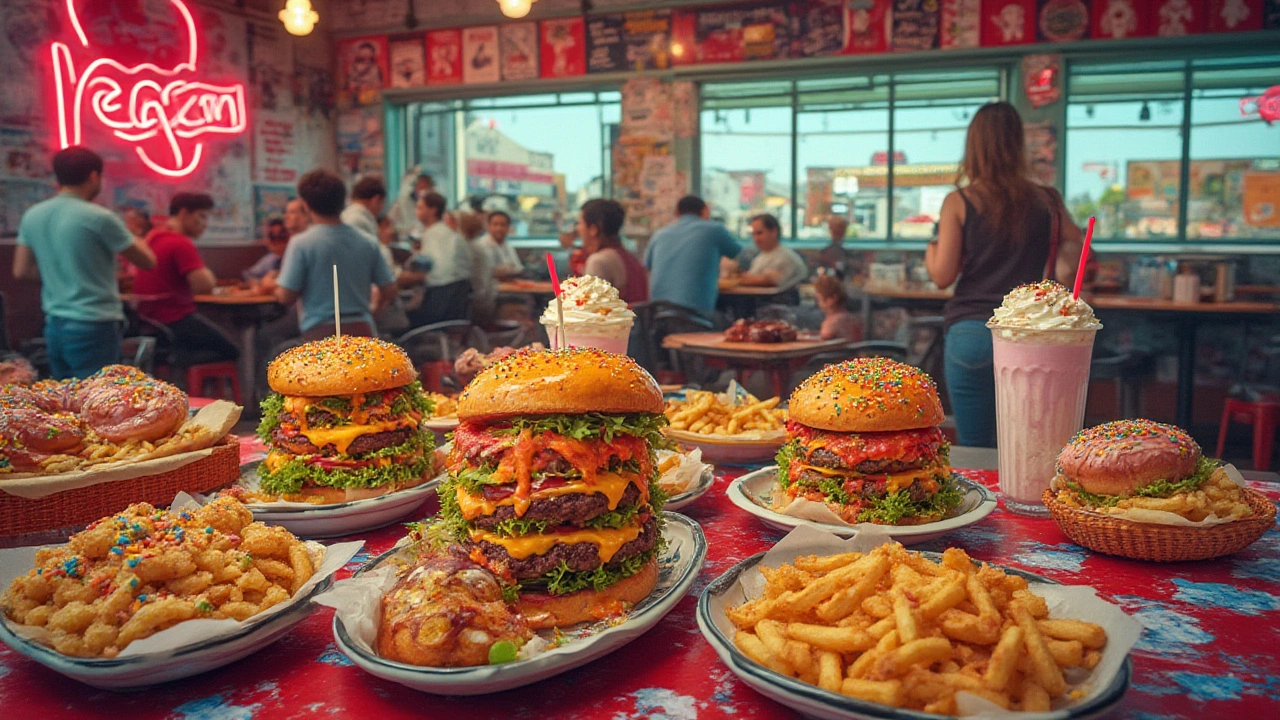
Picture this: you spot a towering, double-decker doughnut, glazed and stuffed with gooey chocolate, boldly labeled “vegan.” Your mouth waters, but part of your brain can’t process how something so decadent fits into the world of plant-based eating. That’s the paradox of dirty vegan foods. They subvert the old idea that vegan food must be clean, green, and poured from the blender. These foods want you to indulge, no animal products needed—just heaps of sugar, salt, fat, and that unmistakable nostalgic hit of pleasure.
What Exactly Are Dirty Vegan Foods?
If “vegan” sets off images of kale salads and smoothie bowls, “dirty vegan” feels almost like rebellion. Dirty vegan foods are plant-based versions of notorious junk food: burgers dripping in sauce, deep-fried “chicken” nuggets, sugary bakery treats, candy bars, vegan cheese pizzas, and ice cream sandwiched inside cookies. They don’t try to be the healthiest choice; their mission is joy, comfort, and craving satisfaction. It’s the sticky-fingers, napkin-soaked-in-grease kind of eating—except without eggs, dairy, or meat.
This trend rose out of vegan street food trucks in London around 2018, popularized by the cheeky brand “Dirty Vegan” and social media influencers posting shockingly decadent recipes. Fast food giants like Burger King and KFC noticed, launching their own plant-based fast food lines to attract a bigger market. Google searches for “vegan junk food” shot up by over 300% between 2019 and 2023; even California’s In-N-Out was rumored to be testing a vegan burger last year—talk about a cultural shift.
But not everything with a vegan label counts as dirty. A granola bar with three ingredients or a homemade stew isn’t it. Dirty vegan food means ultra-processed, usually with added sugars and oil, often low in nutrients but high in flavor and comfort. Think vegan versions of Oreos, Pop-Tarts, ramen, loaded fries, and anything promising that addictive bite.
What Makes Dirty Vegan Foods So Irresistible?
There’s something deep in the human brain that loves a naughty treat. Dirty vegan foods play on that desire. It’s not about salads or tofu cubes—it’s about that familiar bite that takes you back to sneaky midnight snacks or after-school pizza slices. The vegan twist is fun, removing the guilt some people feel about animal products and replacing it with plant-based swagger.
Most dirty vegan foods use a short list of tools to hook you. First up: plant oils and processed proteins (like soy, wheat gluten, or pea protein). These mimic the richness of animal fats. Next: industrial-scale seasonings and flavor enhancers—liquid smoke, MSG, maltodextrin—things that make chips and cheese puffs so hard to put down. Add sugar, lots of it, whether it’s in vegan ice cream pints or bakery items. At some bakeries in New York, you’ll find vegan croissants with 20+ grams of sugar and saturated fat almost as high as regular ones.
Food scientists know why you crave this stuff. It’s the bliss point—a mix of sugar, fat, and salt optimized to trigger dopamine. Supermarket brands have figured this out. Ever noticed how Ben & Jerry’s vegan line has more adventurous flavors? Or that Biscoff cookies (accidentally vegan!) are addictive? That’s by design. Dirty vegan foods might not give you all your nutrients, but for satisfaction, they’re masters of their craft.
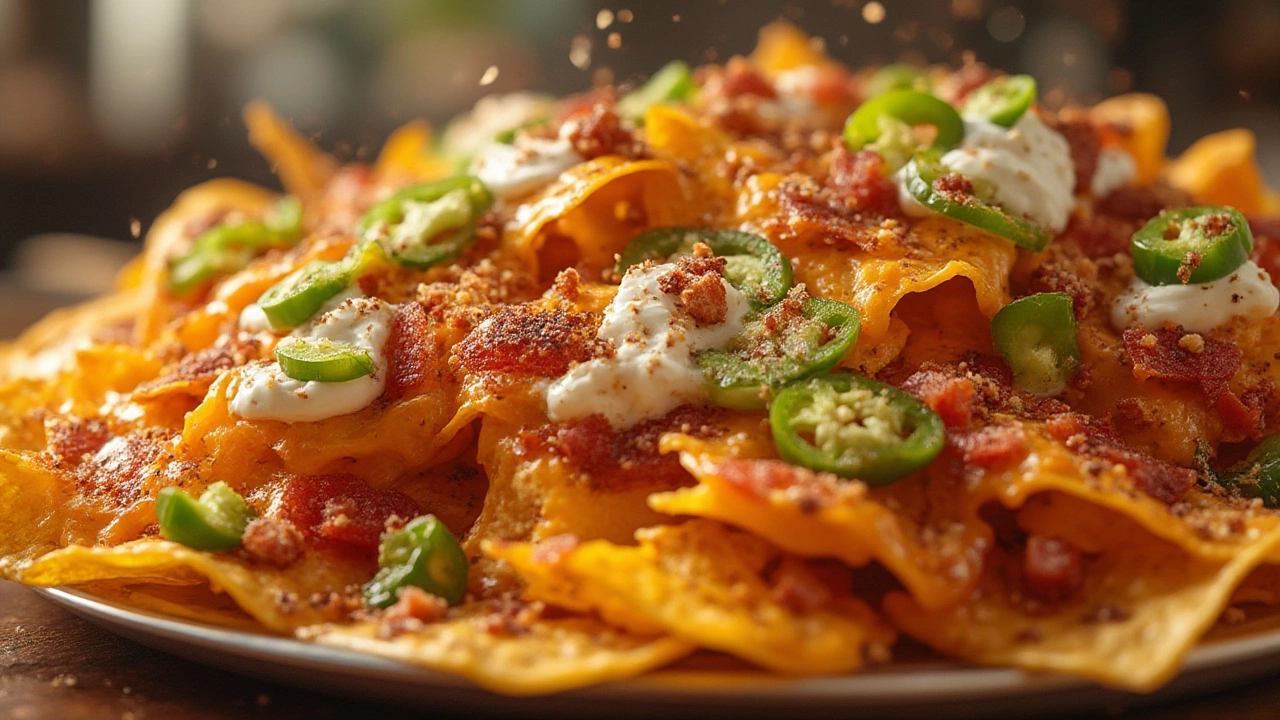
Examples: The Most Popular Dirty Vegan Foods
The line-up of dirty vegan foods reads like a playlist of guilty pleasures, only they skip the dairy and meat. Here are the favorites making waves right now:
- Vegan burgers and fried 'chicken.' Fast food chains serve Impossible or Beyond patties, dunked in vegan mayo, holding up to the messiest, cheesiest competitors. LA’s Monty’s Good Burger has Gen-Z lining up for sauce-dripping vegan burgers with waffle fries and “chik’n” nuggets.
- Loaded fries and nachos. Melted vegan cheese, ranch, jalapeños, faux bacon bits—no salad in sight. Big chains put these on menus for vegans and omnivores alike.
- Oreo-style cookies and sweet treats. Not just basic brownies—now it’s deep-fried Oreos (still vegan), massive cinnamon rolls, doughnuts, and ice cream-stuffed cookies. Brooklyn chain Dun-Well Doughnuts rolls out new filled vegan doughnuts every week.
- Vegan pizza. Forget soggy veggie slices—2025’s vegan pizzas come with triple cheese (made from coconut oil or potato starch), spicy “sausage,” and stuffed crusts. Major brands like Domino’s have vegan options across Europe and Australia.
- Vegan milkshakes and ice cream. Almond or oat milk churned with coconut cream, fudge swirls, and caramel chunks. Even Ben & Jerry’s and Haagen-Dazs are in on it, with vegan pints flying off US supermarket shelves. Sandwich that ice cream between two chunky cookies, and you’ve got peak dirty vegan snack.
Candy bars, chips, and packaged ramen? Plenty are now vegan (accidentally or intentionally). Some, like Sour Patch Kids and Takis, have always been—just don’t expect them to be healthier than their original versions. The point isn’t nutrients; it’s indulgence and fun.
Should Dirty Vegan Foods Be Part of Your Diet?
Admit it—sometimes nothing hits like a crunch, a sugar rush, or the cheesy stretch from a pizza slice, vegan or not. That’s where dirty vegan foods fit in. They offer comfort, nostalgia, and the social freedom to eat junk without the animal part. But they can trick you. Just because the label says “vegan” doesn't mean it’s any better for your health.
Here’s the catch: most dirty vegan foods still pack plenty of calories, saturated fat (from coconut oil, which is high in saturated fat), and refined carbs. Many are low in fiber, vitamins, and protein. An analysis from Harvard in 2024 showed that vegans who mainly ate ultra-processed foods—vegan or not—had higher risks of metabolic issues than those sticking to whole foods. If you’re reaching for a vegan donut daily, you might miss out on key nutrients.
The trick isn’t to fear dirty vegan food, but to treat it as an occasional treat. Think of it like regular junk food—fun, but not for every meal. Some vegans use these foods to make the transition easier, or for social eating, or to just enjoy a non-restrictive lifestyle. If you want a healthier twist, try making your own dirty vegan snacks at home, swapping coconut oil for canola or olive oil, adding nuts for protein, or cutting the sugar. Some vegan bakeries are experimenting this way, but many stick to the classic dirty formula: maximum impact, minimal nutrition.
If you’re worried about gut health or nutrients, balance out the dirty stuff with plenty of fiber-rich veggies, fruits, and grains, and consider a multivitamin. And don’t be fooled: vegan cheese-stuffed crust pizza is still pizza, and a slice once in a while tastes all the better when it isn’t every night. Dirty vegan foods are about joy, celebration, and letting your plant-based hair down. Eat them when you really want them, savor every messy bite, then go back to the kind of food that loves you from the inside out. That’s what makes the dirty vegan movement both wild and smart—it’s about giving yourself permission to eat for pleasure, with no apologies.

